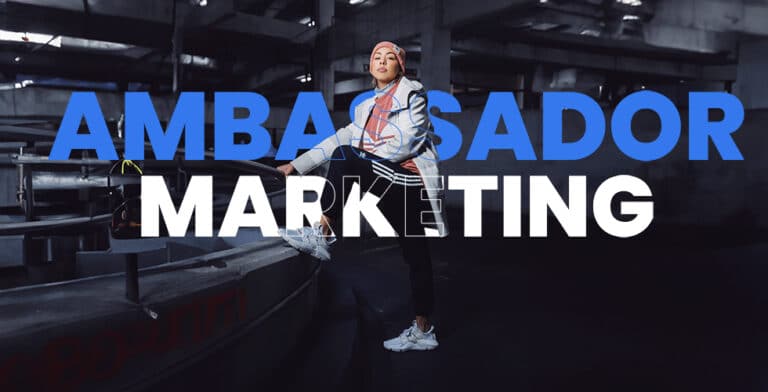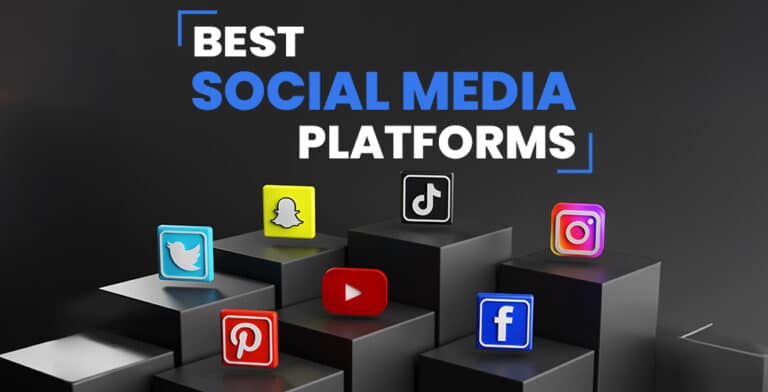Leila decided to buy a certain moisturizer for her oily skin after doing some good research. However, later when she was scrolling through her social media, and saw an influencer giving a fantastic review for a moisturizer, she quickly purchased that moisturizer. It was found that 33% of Gen-Zers would buy a product based on the review of influencers.
This resonates with the fact that how big of an impact influencers have on consumer purchase decisions. This is how influencer marketing has emerged as a powerful tool for brands to connect with their target audience and drive consumer purchase decisions. Influencers, who are individuals with a substantial online following and the ability to influence others, have become the new trendsetters and opinion leaders in various industries.
From fashion and beauty to travel and technology, influencers have established themselves as trusted sources of product recommendations and lifestyle inspiration.
The rapid growth and widespread adoption of influencer marketing can be attributed to the increasing prevalence of social media platforms where influencers can engage with their followers through compelling content and authentic storytelling.
In 2022, the influencer marketing budget jumped from 3.69 billion to 4.14 billion in the U.S. Consumers today are increasingly turning to influencers for guidance and advice when making purchasing decisions. Instead of relying solely on traditional advertising methods, consumers seek the opinions and experiences of influencers who align with their values and interests.
This shift in consumer behavior can be attributed to several factors, including a desire for more authentic brand experiences, a need for social validation, and the perceived expertise of influencers in specific domains.
The Changing Consumer Landscape
If you look at the way a person used to shop in 2002, then you will find a lot of differences in the way the same person shops now. Even people of different age lines had been accustomed to new consumer habits with the e-commerce sector and influencer marketing booming.
Now the consumer landscape has undergone a significant transformation in recent years, driven by the rise of social media and the increasing prevalence of influencer marketing.
Numerous industries have experienced a significant impact from influencer marketing. The fashion and beauty industry, for instance, heavily relies on influencers to shape consumer preferences and purchasing decisions.
Fashion influencers such as Chiara Ferragni and Aimee Song have amassed millions of followers, becoming trusted sources of style inspiration. Consumers turn to them for guidance on the latest fashion trends, styling tips, and recommendations for clothing brands or cosmetic products.

Similarly, the travel industry has also witnessed a substantial influence from influencers. Travel bloggers and Instagrammers, such as Chris Burkard and Louis Cole have created a global community of travel enthusiasts who look to them for destination recommendations, travel tips, and insights into unique experiences.
By sharing their travel journeys and visually stunning content, these influencers inspire and motivate their followers to explore new destinations and book specific travel services.
In the fitness and wellness industry, influencers play a crucial role in shaping consumer behaviors. Fitness influencers like Blogilates have cultivated massive online communities by sharing workout routines, fitness clothes, and fitness advice.
Her expertise and motivational content empower consumers to adopt healthier lifestyles and make informed decisions about fitness equipment, workout apparel, and nutritional supplements.
Moreover, the technology industry has also witnessed the influence of influencers on consumer purchase decisions. Tech enthusiasts like Marques Brownlee (MKBHD) and Linus Sebastian (Linus Tech Tips) have built dedicated followings by providing in-depth reviews, comparisons, and insights into the latest gadgets and electronics.
Consumers rely on their expertise and unbiased opinions to make informed decisions about purchasing smartphones, laptops, or other tech products.
Influencers as Opinion Leaders
The funny yet powerful aspect of influencers is that a pack of their audience would rather listen to them than listen to literal experts. In today’s digital era, influencers have emerged as influential opinion leaders who hold significant sway over consumer behaviors and purchase decisions.
By leveraging their social media presence and engaging content, influencers have cultivated loyal followings and gained the trust of their audience. As opinion leaders, influencers possess several characteristics that contribute to their impact on consumer choices.
Firstly, influencers are seen as authentic and relatable figures. They have built their online presence by sharing personal stories, experiences, and expertise in specific niches such as fashion, beauty, travel, fitness, or technology.
Unlike traditional celebrities or brand ambassadors, influencers often maintain a closer connection with their followers by showcasing their genuine personalities and everyday lives. This authenticity establishes a sense of trust and familiarity, making consumers more receptive to their recommendations.
Secondly, influencers are considered experts in their respective fields. Through their content, they demonstrate knowledge, expertise, and a deep understanding of the products or services they endorse. Whether it’s providing fashion styling tips, demonstrating makeup techniques, reviewing tech gadgets, or sharing travel itineraries, influencers showcase their expertise in a way that resonates with their audience. This expertise positions them as reliable sources of information, and consumers perceive their opinions as valuable and credible.

Another aspect that contributes to influencers’ role as opinion leaders is their ability to connect and engage with their audience. Influencers build communities around their content, fostering two-way communication with their followers.
They actively respond to comments, address queries, and provide personalized recommendations. This interaction creates a sense of authenticity and connection, leading to a stronger bond between the influencer and their audience. Consumers value this direct engagement and feel a sense of belonging within the influencer’s community.
Furthermore, influencers possess the power to shape trends and influence consumer preferences. Their ability to showcase and endorse products or services can result in significant shifts in consumer behavior. Influencers often collaborate with brands through sponsored content or partnerships, introducing new offerings to their audience organically and engagingly. Their recommendations carry considerable weight, driving consumer interest, and generating purchase intent.
Lastly, influencers have the advantage of leveraging various content formats and platforms to reach their audience. From visually appealing Instagram posts to long-form YouTube videos, influencers adapt their content to cater to different consumer preferences. They employ storytelling techniques, visually engaging imagery, and creative narratives to captivate their audience and drive their opinions and choices.
FTC Compliance And Transparency In Influencer Partnerships
FTC compliance and transparency in influencer partnerships refer to adhering to the guidelines set forth by the Federal Trade Commission (FTC) to ensure clear disclosure of sponsored content. Influencers must clearly and conspicuously disclose their relationship with brands, such as when they receive compensation, free products, or have a business partnership.
This transparency helps consumers understand the nature of the influencer’s endorsement, maintaining trust and preventing deceptive practices. Adhering to FTC guidelines is crucial for influencers and brands to maintain ethical and legal standards in influencer marketing campaigns.
Influencers Influencing Our Purchase Decisions?
Influencer marketing has become a powerful force in shaping consumer purchase decisions. Influencers, with their authenticity and relatability, have gained the trust of their followers, making their recommendations highly influential.
From fashion and beauty to travel and technology, influencers have successfully impacted consumer preferences and brand choices. As businesses recognize the importance of leveraging influencer marketing, understanding and harnessing this relationship can drive sales and brand loyalty in today’s digital landscape.




